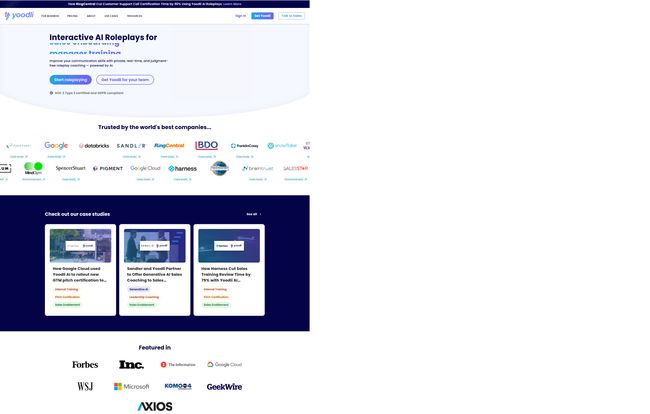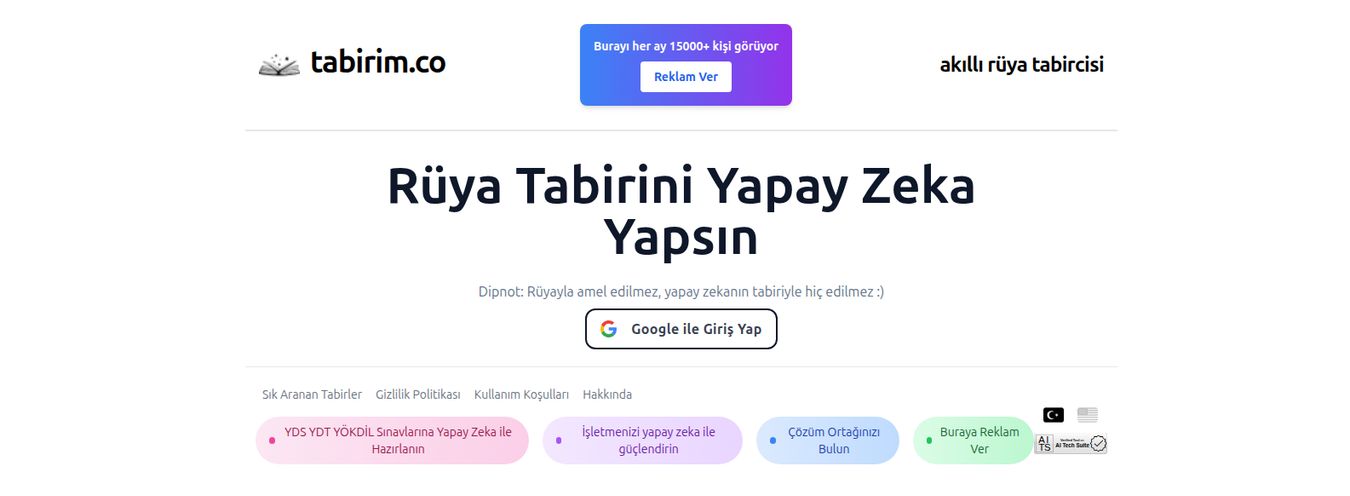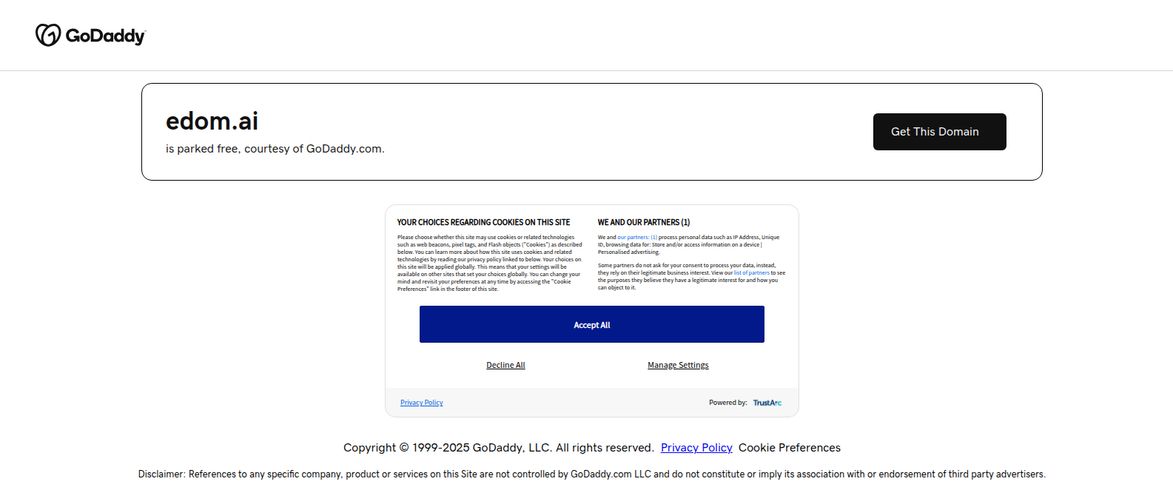We’ve all been there. You’re in a high-stakes meeting, maybe a client pitch or a presentation to your boss. You know your stuff. You’ve prepared. But when you open your mouth, out comes a stream of… “ums,” “ahs,” and “you knows.” You start talking too fast, you lose your train of thought, and you can feel the room’s energy just… deflate. It’s a uniquely awful feeling.
For years, the standard advice has been 'join Toastmasters' or 'hire a personal speech coach.' And that's solid advice! But it takes time, money, and a heaping dose of courage to practice in front of other people. So when I kept hearing whispers in my SEO and marketing circles about an AI-powered speech coach called Yoodli, my curiosity was piqued. An AI that gives you private, real-time feedback? A tool that promises to be your personal, non-judgmental speaking partner? Yeah, right.
As someone who's spent years crafting the perfect pitch and A/B testing ad copy down to the last comma, I know that how you say something is often more important than what you say. A fumbled delivery can kill the most brilliant campaign idea. So, I decided to put my skepticism aside and give Yoodli a real shot. Is it just another piece of overhyped tech, or is it the secret weapon we've all been waiting for?
So, What Exactly is Yoodli?
Think of Yoodli as a fitness tracker, but for your speech. Instead of counting steps, it counts your filler words. Instead of tracking your heart rate, it analyzes your speaking pace. It’s an AI tool designed to be your private communication coach, running quietly in the background of your online meetings or available for dedicated practice sessions. The whole premise is built on a simple but powerful idea: you can’t fix what you can’t measure.
Yoodli listens to you speak and provides instant, private analytics on your delivery. It nudges you in the moment—without anyone else knowing—if you're rambling or speaking too quickly. And afterward, it gives you a full report card on your performance. It's meant to give you the benefits of coaching without the anxiety of a live audience. A pretty compelling pitch, I have to admit.

Visit Yoodli
My Experience: Putting Yoodli to the Test
Getting started requires downloading a desktop app, which was a minor point of friction for me initially. I generally prefer browser-based tools. But the installation was quick, and it integrated smoothly with my Google Meet and Zoom. So, hurdle one, cleared.
The Real-Time Nudges
My first test was a low-stakes internal team meeting. I enabled Yoodli and… waited. A few minutes in, as I was explaining a complex traffic trend, a tiny, discreet notification popped up on my screen. It basically said, "Pacing a bit fast." Nobody else saw it. It was just for me. It was surprisingly effective. It wasn't a blaring alarm, but a gentle tap on the digital shoulder. I took a breath, slowed down, and continued. It also flags filler words as you say them, which is… humbling, to say the least. You don’t realize you say “like” twelve times in a minute until an AI points it out.
The After-Action Report
This is where Yoodli really shines for a data-nerd like me. After a call, you get a full transcript and a dashboard breaking down your speech. It's fascinating stuff. Here’s a peek at what it tracks:
- Filler Words: A complete list of your crutch words ('um', 'ah', 'so', 'basically') and how often you used them.
- Pacing: Your words per minute, with a graph showing when you sped up or slowed down.
- Word Choice: It flags weak words or non-inclusive language, which is a thoughtful touch.
- Question-to-Answer Ratio: In a conversation, is it a monologue or a dialogue? Super useful for sales calls.
Seeing my progress laid out in graphs week over week was the real motivator. It gamifies the process of self-improvement. My competitive side kicked in—I had to get that filler word count down next time.
The Good, The Not-So-Bad, and The AI Reality
No tool is perfect, right? After using Yoodli for a few weeks, I have a pretty balanced view of where it excels and where you need to manage your expectations.
What I Genuinely Love
The biggest win for Yoodli is its core promise: private and judgement-free feedback. There is zero social risk. You can practice that big presentation ten times, experiment with different openings, and get objective feedback every single time without boring a colleague to tears. This is huge for building raw confidence. The AI-powered drills for impromptu speaking are also a fantastic feature. The app throws a random topic at you and gives you two minutes to speak on it. It's like a mental workout for thinking on your feet.
The data-driven approach is also a massive plus. It moves communication coaching from a world of vague suggestions like "be more confident" to concrete, actionable goals like "reduce your 'um' count from 15 per minute to under 5." You can see your ROI, so to speak.
A Few Caveats
Let's be real. The fact that it's a desktop app might turn some people off, especially those in locked-down corporate environments (though the Enterprise plan likely addresses this). And while the AI is incredibly smart, it’s not human. It can tell you that you spoke too fast, but it can’t always understand why. It doesn't pick up on the subtle, contextual art of communication—the strategic pause for dramatic effect, the passionate acceleration when you're telling a story. It's a fantastic coach for the mechanics of speech, but it's not a replacement for a human coach who can guide you on emotional tone and audience connection.
Who is Yoodli Built For?
After my trial run, I have a clear idea of who would get the most out of this tool.
- Sales Professionals & Account Managers: To refine their pitch and ensure they’re listening more than they’re talking.
- Job Seekers: For nailing the interview. Practicing common questions with Yoodli would be a game-changer.
- Team Leaders & Managers: To ensure their instructions are clear, concise, and motivating.
- Students & Academics: For defending a thesis or presenting research.
- Anyone with a genuine fear of public speaking who wants a safe space to get better.
Who might not need it? If your communication is mostly casual and unstructured, or if you're already a highly polished speaker, it might be overkill. It's a training tool, not an everyday social accessory.
Let's Talk Money: Yoodli Pricing Breakdown
Yoodli's pricing is pretty straightforward, which I appreciate. They have a freemium model that lets you get a real feel for the product before committing.
| Plan | Price | Key Features | Best For |
|---|---|---|---|
| Free | $0 | Up to 5 'Yoodlis' (sessions) | Anyone who wants to try it out, casual users. |
| Pro | $8/month (billed annually) | 10 Yoodlis per week, early feature access | Regular users, professionals who present often. |
| Advanced | $20/month (billed annually) | Unlimited Yoodlis, data excluded from AI training | Serious professionals, those concerned with privacy, people who can expense it. |
| Enterprise | Custom Pricing | SSO, custom branding, dedicated support, SOC 2 | Large teams and entire companies. |
The free plan is genuinely useful for a quick test drive. The Pro plan feels like the sweet spot for most individuals. And that Advanced plan? The fact that they call out that your data is excluded from AI models is a major plus for privacy, and the mention that it’s often reimbursable as a learning benefit is a pro tip for anyone looking to get their employer to foot the bill.
Final Verdict: Is Yoodli a Gimmick or a Game-Changer?
I came in skeptical, and I'm walking away impressed. Yoodli isn't going to magically turn you into Barack Obama overnight. But it is an incredibly effective tool for sanding down the rough edges of your speaking style. It makes you aware of your verbal tics in a way that's hard to achieve on your own.
It's not a replacement for a human coach, but a powerful supplement. Think of it this way: a personal trainer is amazing, but you still do most of the work on your own at the gym. Yoodli is your 24/7, on-demand gym for communication skills.
For the price of a few fancy coffees a month, it provides actionable, data-backed insights that can have a real impact on your professional life. In a world of remote work and endless video calls, clear communication is more valuable than ever. And for that, Yoodli is, in my opinion, absolutely worth it.
Frequently Asked Questions About Yoodli
1. Is Yoodli secure and private?
This is a big one. According to their site, the analysis is private to you. For maximum privacy, the Advanced and Enterprise plans explicitly state that your data is not used to train their global AI models. They also mention SOC 2 Type 2 compliance for enterprise clients, which is a high standard for security.
2. What platforms does Yoodli work with?
It's designed to work with major online meeting platforms like Google Meet, Zoom, and Microsoft Teams. You can also upload pre-recorded audio or video files or just use it to practice directly in the app.
3. Can Yoodli help me with my accent?
Yoodli's primary focus is on delivery mechanics like pacing, filler words, and word choice, not necessarily on accent modification. While clearer enunciation might be a byproduct of slowing down your speech (which it tracks), it's not an accent-reduction tool at its core.
4. Is the free version of Yoodli good enough to be useful?
Yes, definitely. The free plan with up to 5 sessions is more than enough to diagnose your main speaking habits. You can get a ton of value just from those first few reports. It's a great way to decide if the paid features are worth it for your specific needs.
5. Can I cancel my Yoodli subscription at any time?
Like most modern SaaS products, you can typically manage your subscription from your account settings. The annual plans are billed upfront for the year, so be sure to check their specific terms of service for details on cancellation policies.
6. How is Yoodli different from a tool like Grammarly?
Great question. Grammarly focuses on the written word—your emails, documents, and messages. Yoodli focuses exclusively on the spoken word—your presentations, meetings, and speeches. They solve two different, though related, communication challenges.



